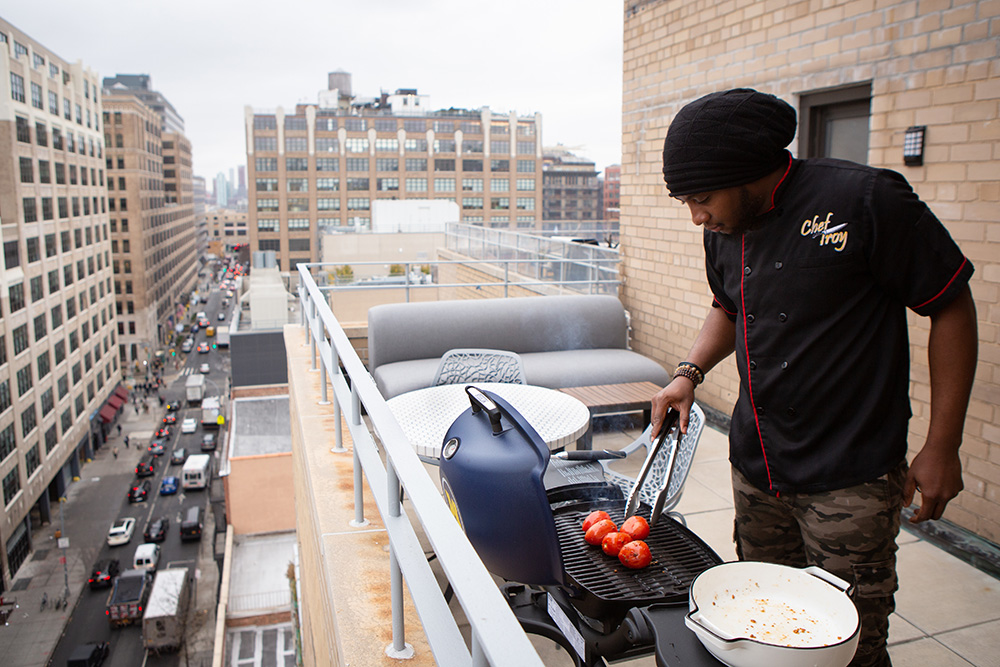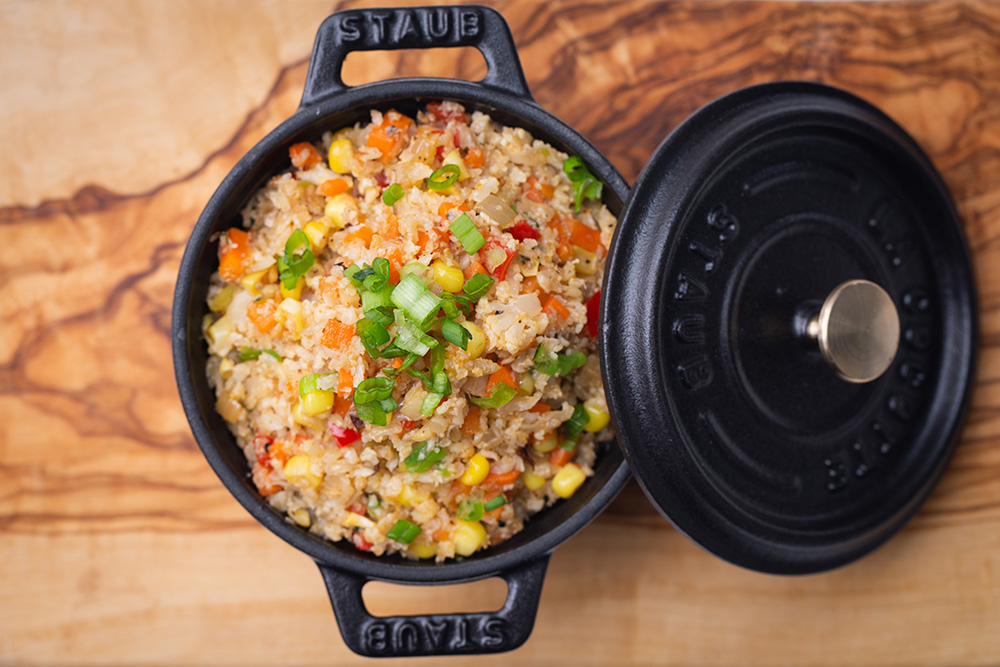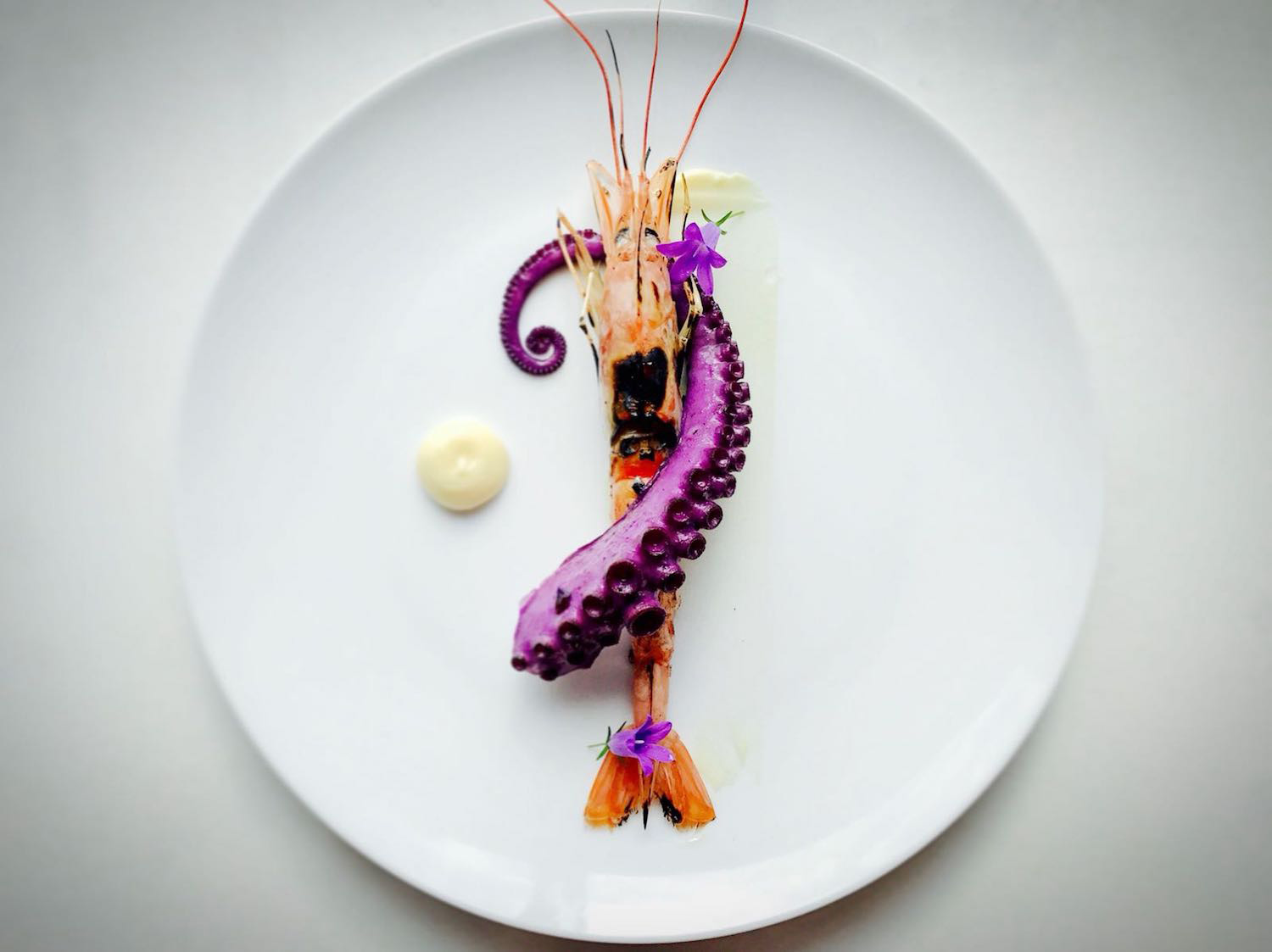Faithfully In Pursuit of I-tal

Troy Levy, a Rastafarian and a chef, is on a mission to show the world the positive potential of I-tal.
Despite the cold day, Troy Levy was relishing the opportunity to grill plump red tomatoes on a rooftop in New York City. Mr. Levy, a Rastafarian who prefers to use the name Chef Troy, rarely gets to showcase the flavorful range of I-tal cooking.
I-tal cuisine, based on tenets of the Rastafarian faith and well known in Jamaica, where Chef Troy is from, has been slow to enter the mainstream food scene in the United States. Chef Troy would like that to change.
“I'm trying to educate and enlighten people about healthy eating,” he said. As part of his Rastafarian faith, the 35-year-old chef adheres to a dietary lifestyle that would make even a vegan blush. On top of being animal free, his food must contain no chemicals, preservatives or salt.
“I-tal is really things that are vital for your system,” Chef Troy said. The play on “I-tal” and “vital” is no accident – it is a common belief that the terms are one in the same. The spelling is also a nod to deeper principals in the Rastafarian faith.
When the tomatoes were tender enough to burst, Chef Troy gingerly transferred them to a white ceramic tray and allowed them to cool.
Coconut milk polenta spiced with Scotch bonnet plated atop a grilled tomato choka. Chef Troy, a cook who prepares I-tal meals as part of his Rastafarian faith, topped the dish with a jerk-seasoned portobello mushroom. Photography by Clay Williams
Cauliflower fried rice is punctuated with an array of red, green and yellow vegetables. The colors represent Chef Troy’s love for Ethiopia, which Rastafarians point to as the birthplace of their messiah, Emperor Haile Selassie. Photography by Clay Williams
For the menu, Chef Troy was preparing a coconut milk polenta spiced with Scotch bonnet and topped with slices of a jerk-seasoned portobello mushroom. The polenta would be plated atop grilled tomato choka – a sort of chutney imbued with peppers, onions, cilantro and lemon juice.
He would accomplish all of this without touching a grain of salt. The ingredients would be organic and everything would be made fresh – including the spices.
The next dish was a stir-fried rice. Instead of using rice, he opted for a healthier option. He used head of cauliflower, which was grated, roasted and then sautéed in garlic, ginger and shallots.
The dish would not only look like fried rice, it would taste like it, too.
This is the I-tal cuisine Chef Troy wants the world to taste.
Of course, few know that I-tal even exists.
“I’m trying to educate and enlighten people about healthy eating,”
Chef Troy bides his time as he waits for the world to catch up.
“It is difficult in the American culinary industry to cook as a real Rasta,” he said, citing the dependence people have on meats and processed foods. Trying to persuade people to take a less-is-more approach is a practice of faith and patience.
“People think that I-tal food is going to be bland,” Chef Troy said, pointing to what he sees as another misconception people have, about a need for salt. “It’s ridiculous. A lot of people don’t understand it.”
Despite these differences, he has risen through the ranks.
Following an appearance on “Cooks Vs. Cons” a competition show on the Food Network, he became a kitchen manager at the B.B. King Blues Club & Grill in Times Square and later executive chef at the Highline Ballroom in New York’s Chelsea neighborhood.
Increasingly though, he said, he was torn between his faith and his profession.
“When I do things like cooking meat, I feel like a hypocrite,” Chef Troy said. “But at the end of the day, I’m conscious enough in knowing that I’m personally in the process of changing to do what I want to do.”
Chef Troy at the Union Square Greenmarket, where he frequently purchases produce from farmers who grow organic crops in rural areas near New York City. Clockwise from top left: Chef Troy with organic squash; oyster mushrooms; freshly cut beets; and potatoes. Photography by Clay Williams
In the meantime, he slips in I-tal cooking for diners where he can.
At the James Beard House last November, he was invited to contribute a smoked tofu to a dinner. The dish was served with a savory ackee hummus and pickled beets. (Ackee, the national fruit of Jamaica, is a West African native that was transported to the island.) The following month, in the Delegates Dining Room at the United Nations, he made a vegetable stew that came with polenta sticks. He also prepared a pumpkin soup infused with fresh coconut milk. In both instances, he adhered strictly to his I-tal guidelines. No one was the wiser.
“When I do things like cooking meat, I feel like a hypocrite,”
Largely plant based, I-tal is arguably the lesser known cousin of the vegetarian and vegan families. And because the cuisine is so unfamiliar, I-tal chefs often find it easier to market themselves as vegetarian chefs. Even Chef Troy admits to doing it.
“People still have no idea what I-tal is,” he said. “I could come to you and say, ‘I’m a vegan chef,’ you know what that is. If I say, ‘I’m an I-tal chef,’ they say, ‘What is that?’ So, I’m gradually introducing it to them.”
On weekends, Chef Troy hosts a vegan-friendly brunch in Queens where he puts a spin on chicken and waffles. Instead of meat, he deep fries an oyster mushroom. He also serves a Glengoffe kale salad (a tribute to his hometown); it is made with carrots, pomegranate and roasted beets and comes with a ginger dressing.
“I want you to think positive and righteous, and the only way you’re going to do that is if you fuel your body with natural and I-tal things,”
Working to satisfy both vegan and I-tal eaters does take extra effort.
Chef Troy swaps out honey, which vegans do not eat, for pure maple syrup juice when he needs sweetness. He uses mushrooms instead of seitan (a type of processed wheat meat that Rastafarians do not eat) to give a dish a bit of chew.
He performs these dietary acrobatics daily. The sacrifice is well worth it.
“I want you to think positive and righteous, and the only way you’re going to do that is if you fuel your body with natural and I-tal things,” Chef Troy said. “It all starts with what you put into your body.”
Chef Troy’s Caribbean Brunch takes place on certain Sundays from 11 a.m. to 3 p.m. at Pulse Zero Bar and Cocktail Lounge, 224-01 Linden Blvd., Queens, NY. Contact 646-244-2450 to find out if this brunch is taking place before you go.







